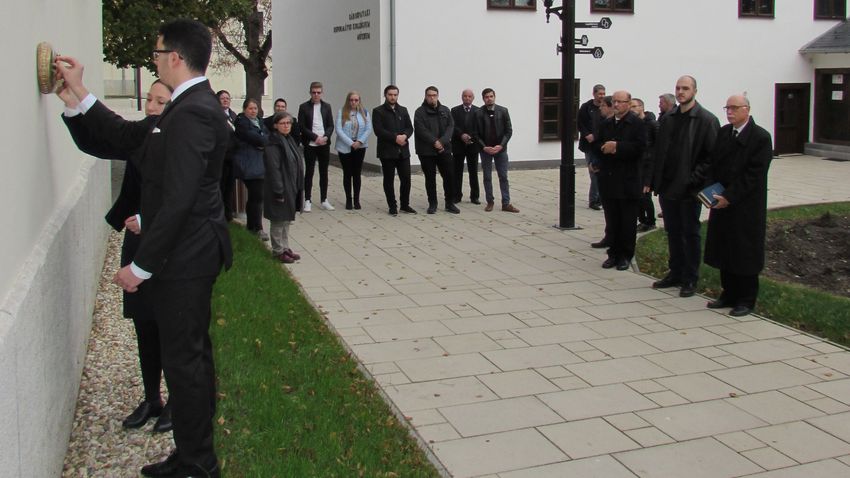A way to know reality – Reformed Theological Academy Sarospatak joined the Hungarian Science Festival organized by the Hungarian Academy of Sciences (MTA) with a series of lectures organized under this title. Related to the topic, teachers and educators at the institution provided a cross-section of the research work being done in theology.
Dr. Zsolt Károly Nagy, program organizer and one of the presenters, told our newspaper: When the Hungarian Academy of Sciences organized programs related to the celebration of sciences, they also approached theology to join this series of events. He added that the request came as a surprise, as theology is not currently considered an academic science in Hungary. That is why their first plan was to answer the question: why and how is theology a science. In the end, they gave a taste of science from the point of view of Sarospatak to a large number of interested people who otherwise would not have hoped for it. In his lecture on the specific relationship between ethnography and theology, the organizer pointed out, for example, how important it is for priests to know the history and customs of the settlement where they serve, because in this way they can communicate more easily with the local population. This, he said, could be a key element in building the church. At the start of the event, the event was also welcomed by former Pataki student Peter Bierko, Vice President of the MTA Miskolc Regional Committee.
A wonderful generation of teachers
Before the lecture series, the participants remembered the great generation of 20th-century teachers at Sarospatak Reform College, where Professor Sandor Engi, Dean of Theology, delivered a memorial speech. He explained: Every day since 2013 he walks in front of the plaque that preserves the memory of his distinguished ancestors on the wall of the institution. The president of the university added that the most important message in their work is that they set an example for today’s generation as well, and that commemoration is worth as much as their lives and work leave a mark on future generations as a seed. He emphasized: If they do their job well, today’s teachers and researchers can become a similar example, it only depends on them, the model is introduced. He also mentioned that Count József Teleki was the first president of the predecessor of the Hungarian Academy of Sciences, the Hungarian Society of Scientists, who had previously served as the first in charge of the Correctional College at Sarospatak.
Amplifiers
Among the speakers is Dr. Szilveszter Füsti-Molnár speaking on the current role of dogmatics in the Church, d. Gabriela Raxuk has identified many ethical issues. One of the most important tasks of the Reformed Church is church building. Rev. Joseph Kosmos Jr. gave a talk on this topic. Dr. Anita Barnowski offered insight into practical theology, “Compulsive Research. That’s a Question of Certain Gender…” — titled. The Institutional Chaplain of Theology, Gyula Pashtoor, spoke on the challenges of living the faith, Dr. Emília Szatmári placed the history of the church in Historical Studies, and also mentioned examples from Sárospatak. The event ended with a forum discussion.












































